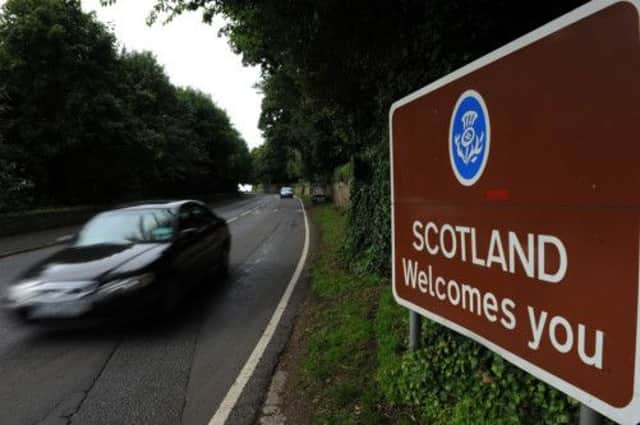Scottish independence immigration policy warning


Both Labour and SNP administrations in recent years have voiced frustration at a lack of freedom to attract people with the right skills to address labour shortages north of the Border.
But Christina Boswell, professor of politics at Edinburgh University, has told the Royal Society of Edinburgh that there would still be constraints after independence.
Advertisement
Hide AdAdvertisement
Hide AdScots have a “more generous approach” to immigrants, compared with the rest of the UK, the academic said. “Scotland in the event of independence would be keen to pursue a more liberal immigration policy than is currently pursued by the Home Office,” she said.
However, this could change after a Yes vote next year. “I would caution against relying on this to be sustained in the event of independence and a move to liberalise immigration policy,” she said.
“To be frank, no European government since the early 1970s, with the possible exception of Spain, has been able to sustain a more liberal approach to immigration. Both the UK and Germany in their different ways attempted to liberalise policy in 2000s but sooner or later were thwarted by negative populist media and negative party political mobilisation.”
Most governments get round this with hardline rhetoric to appease public opinion, while having “opaque” immigration arrangements that let in people with needed skills.
“What hasn’t happened in any European country, with the possible exception of Spain, is that there has been an explicitly open liberal rhetoric on labour migration that has been sustainable in the face of public opinion,” she said.
Public opinion is likely to shift after independence, she added. “Once the government does have responsibility, it will be accountable for this area and there are likely to be strong incentives for opposition parties and the populist media to highlight the adverse effects of more liberal policies. This has been the experience of most European countries in the 1980s and 1990s.”
The SNP government would have to “think very carefully”, she said, about how it phased in reforms of the system to keep public opinion and opposition parties on board.
But Prof Boswell said there was still likely to be a common travel area with the rest of the UK after independence.
Advertisement
Hide AdAdvertisement
Hide Ad“I would strongly assume that, in the event of independence, the EU would not impose Schengen membership on Scotland,” she said.
The UK is not part of the so-called “open borders” Schengen arrangement in continental Europe, but there has been speculation Scotland may be forced to join up if it becomes an independent EU member.
Prof Boswell added: “The only reasonable and practical approach would be to concede that Scotland, like Ireland, would be part of a common travel area with the UK and would be outwith Schengen.”
This would allow free movement without passport checks, but immigrants with permission to work in Scotland won’t be allowed to reside or work south of the Border.
ELSEWHERE